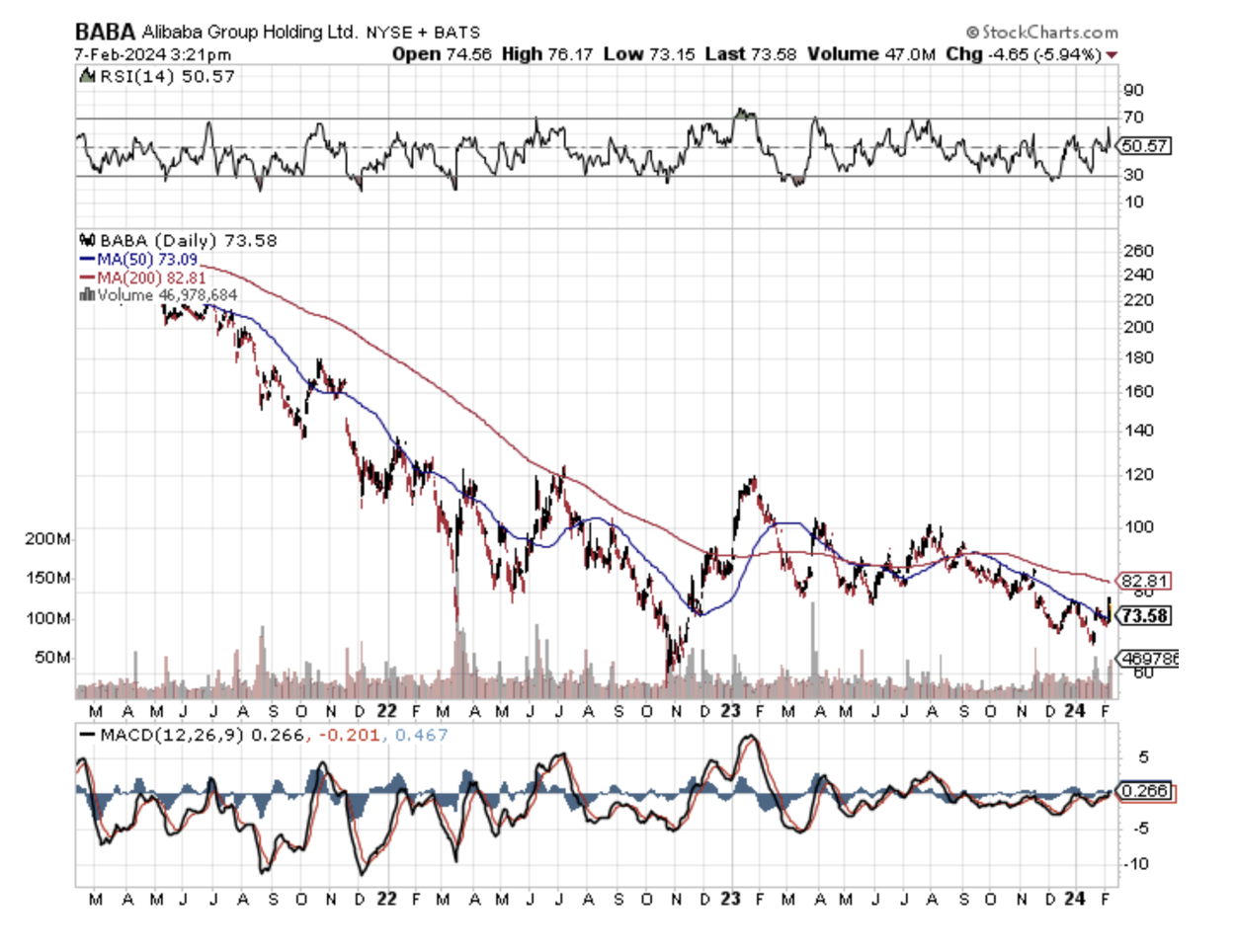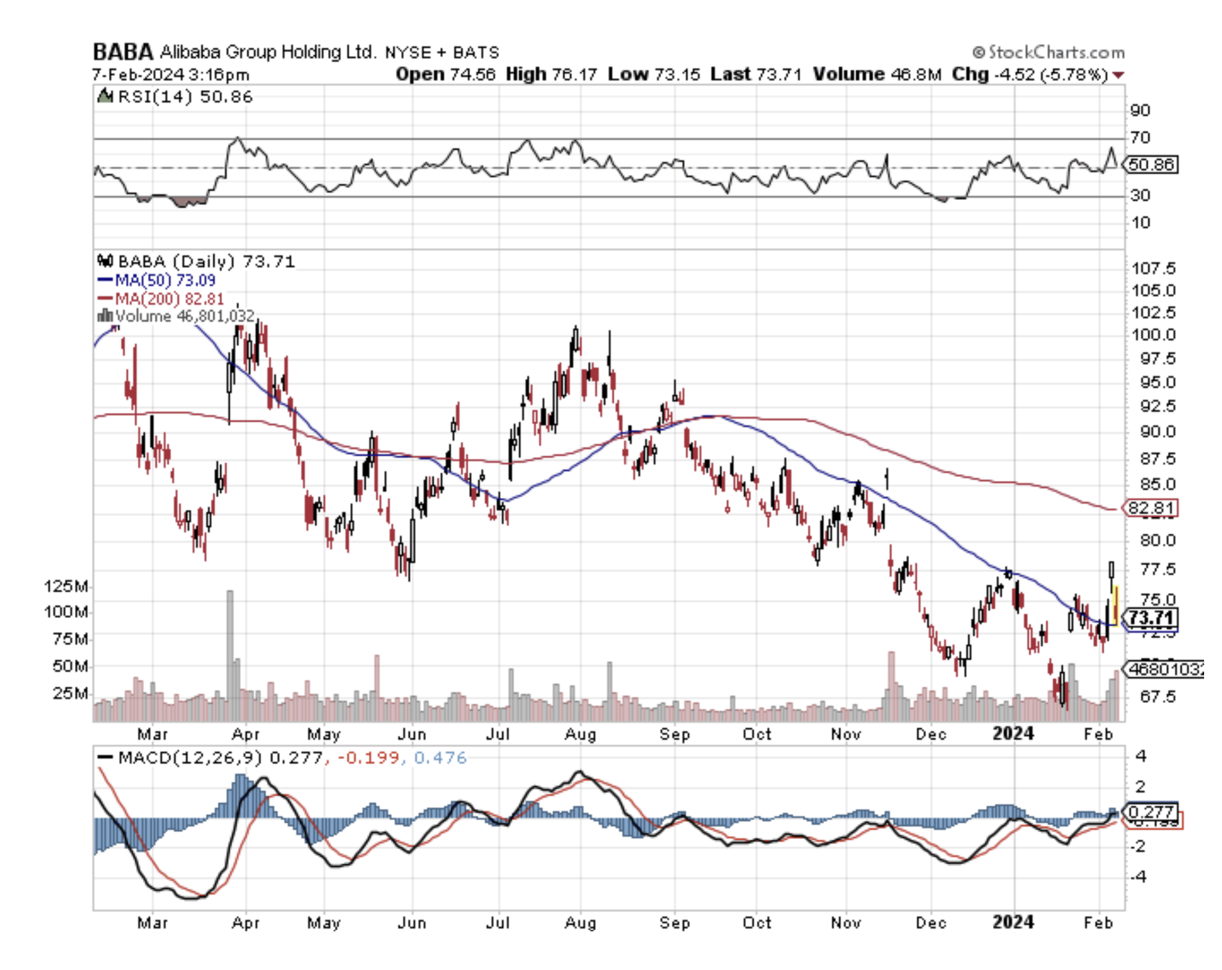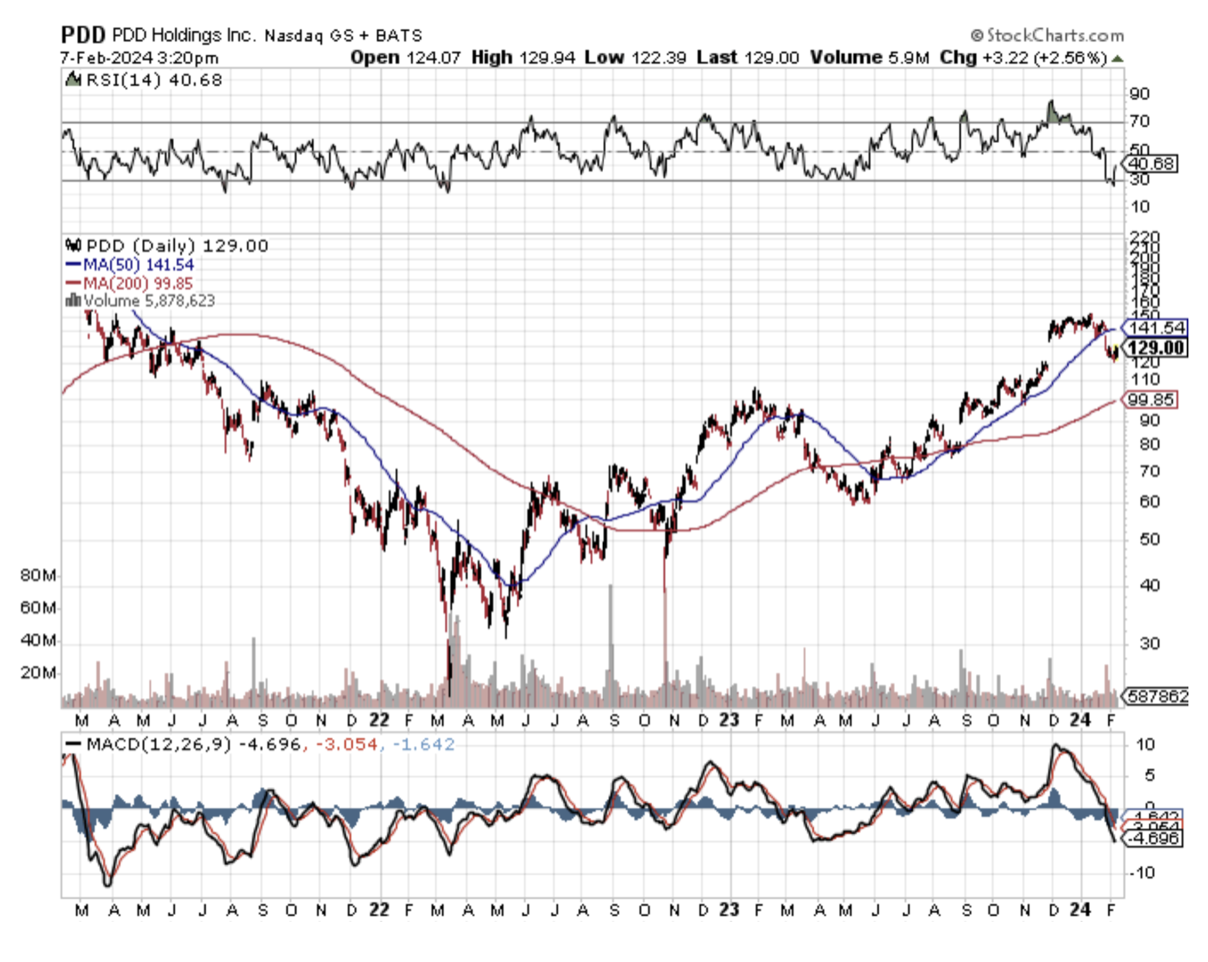Is BABA Worth A Trade?
Remember when Chinese tech was supposed to topple Silicon Valley?
That was just a few years ago and it is mind-boggling how the situation has had a sudden about-face.
Chinese tech has been left twisting in the wind of mediocrity while American tech has forged through and seized the opportunity to become the best tech industry on the planet.
Some of the weaknesses are quite glaring and the most obvious one comes in the form of Chinese e-commerce company Alibaba’s 75% nosedive from a 2020 record high.
The crash has flattened its valuation to an all-time low and put its market capitalization on a par with upstart rival PDD Holdings (PDD).
Alibaba’s revenue for the three months through December only rose 5.6% from a year ago, the slowest growth in three quarters amid difficult economic conditions and steep discounting.
Forward earnings estimates for the company have fallen about 4% over the past month.
China’s online retail market is saturated and the backdrop is getting worse.
Alibaba and JD.com are the old men in the nightclub club while fresh faces like Douyin Mall, run by TikTok owner ByteDance are chomping at the bit.
At the same time, persistent deflationary pressure and declining wages have driven a price war that is being won by discounters like Pinduoduo, the local equivalent of PDD’s Temu.
Alibaba is forecasted to cede market share as they face fierce competition from rivals like Douyin and PDD.
Another focus would be whether they are able to import new drivers to maintain their overall growth.
Alibaba spent $9.5 billion on share buybacks last year, a record high.
Revamp efforts led by the company’s new management include scaling down non-core business while stepping up investment in global expansion and artificial intelligence.
It’s focusing on improving core operations, including moving resources from its Tmall site to Taobao in order to better meet demand for cheaper products, though it may take time to see results.
This focus on lower prices will lead to weaker revenue growth, which is certainly negative to near-term sentiment and share price. The company’s core business growth will likely “remain lackluster in the next four quarters.
With many things in China, this is a race to the bottom and BABA is getting a proper taste of that Chinese medicine.
Lower prices are met with even lower prices and it becomes a war of attrition.
Investors don’t like to hear that.
In the most recent earnings report, net profit declined by 77%.
Overall sales growth last quarter rose by just 3%.
This company used to be a supercharged growth company and in just a few years, they have almost been swept into the dustbin of history.
BABA stock is down today over 5% from the poor earnings report as the stage is set for BABA to hardly grow at all in the foreseeable future.
Many from Gen Z have remarked how discount e-tailers like PDD’s Temu have flooded American social media platforms with ads.
This trend has resulted in negative impacts to BABA’s staying power in e-commerce and the profit margins are in the firing line as we speak.
At $73 per share, the stock might be in for a dead cat bounce for a trade.
Long term, the stock has lost its luster and lost its mojo.
BABA shouldn’t be touched with a 10-foot pole as the entire Chinese economy goes through the motion of a slowly forming zombie corporate structure.




